Unabashed Book Snobbery: GoT's 10 Worst Adaptational Decisions
Unabashed Book Snobbery: GoT's 10 Worst Adaptational Decisions

Spoilers only through GoT S4.
Anonymous said: I recently discover your blog and I’m in love with it, I’m in full reading of all your posts! But at the risk of repeating something that someone you have already ask for you… I cannot resist the curiosity! Especially after your magnificent poll, cause I like how critical you are with Game of Thrones so… What would you say are the 10 worst decisions committed so far? Scenes, plots or characters. (btw, sorry, my english sucks)
Well, anon, at first when I saw this I smiled, jotted down a knee-jerk bulleted list, and sent it over to a friend of mine who also happens to be critical of the show. Then she and I began talking about it further, and suddenly it became a Google Doc with mini essays. The following is a collaboration between myself and the wonderfully talented Dornish enthusiast theculturalvacuum.
To quickly preface, we are not the types of people who will criticize every minor change when a book is being adapted to the visual medium. Even with GoT, there are times we even kind of like changes. But the fact is, with this series, we have very good reasons for our book snobbery. Showrunners David Benioff and Dan Weiss (D&D) have, over time, demonstrated to us that they have a very limited understanding of the characterizations and themes at play in a series that is about so much more than twists and gasps. In the case of LOTR, it was clear that Peter Jackson, despite his changes, understood Tolkien’s vision. From our perspective, while D&D may know plot-wise where ASOIAF will end up, what they are giving us is a story that relies on overused tropes and trite interpretations, which ultimately misses “the point.”
So without further ado, the 10 worst adaptational changes, from least awful to most:
10. Masturbatory original dialogues:
Back when Season 1 was in production, D&D found themselves short in terms of run-time. It was a low-budget operation back then, so they added a lot of scenes of just two or three characters talking in one room as a way to pad their show. Originally, these scenes were thought of as the shining stars of the series (Varys vs. Littlefinger being almost like a spy vs. spy). Then they turned into…
Keep reading
More Posts from Darthvoxpo and Others

Would that there were five of me, one for each child, so I might keep them all safe.
You know that Ada Limón poem where she’s like “i can’t help it i love the way men love”? my dad recently confessed to me that he became a shoemaker because they buried my grandma shoeless
oh…………………………………
it’s been said before, of course, but i just love the scene at the end of guards! guards! where the men are offered a reward, and it’s just… vimes hadn’t even considered it, and as to the others – well, vetinari calls it a petty wage increase and a domestic utensil. and a dart board. a hogswatch present, basically, and a yearly raise.
the sort of thing you get for being a decent employee of a boss who vaguely appreciates you: five extra dollars a month, and a dart board. oh, and we’ll replace the lost kettle.
vetinari expected them to ask for a reward that matched the heroism of their deeds, and was completely taken-aback by the pettiness of their request, but that’s the point: they did ask for a reward that matched, to them, the heroism of their deeds. because they weren’t Heroes. they were just some guards who thought it was wrong that a fine lady was going to be sacrificed. who believed that the city wouldn’t stand for feeding one of their own to a dragon. who, when left without supervision or leadership, said well we might as well try and got on top of a distillery to shoot an arrow in a million-to-one chance that maybe they could do something about it.
and a lot of that is carrot’s inspiration, but it’s also worth noting that colon and nobby are repeatedly shown to be the quintessential men of the street. in later books, vimes asks them how they feel and what they think to get an idea of how the city is reacting to the events at-hand, because they represent the common people of ankh-morpork.
and these two common people, out of shape and cowardly and bumbling, just a couple of guys – when the new recruit says it didn’t ought to be like this, and says, what are we gonna do next?
these two common people say, well what the hell, let’s give it a try. the city, the people, with no one left on their side but themselves and the dragon crowned triumphant, look to one another and decide to try.
and to them, that isn’t heroism, because it’s… just common. they’re just people. they’re just doing what people do.
I'm still trying to wrap my mind around Men at Arms.
It's a fantastic book, but it is also so different from Guards! Guards! in tone. And maybe that's where the key is. It's not that the villain of the story is perhaps one of the most proficient killers in all of Discworld (all two and a half of them... D'Eath, Cruces, and The Gonne) and their goal is to actually kill. It's not even that the crimes that the watch are investigating are murder, because even though paid assassinations are legal death and murder are part of the setting. Death is literally a character here, though much more briefly than G!G!. Frankly, I don't even think it's because of the racial allegories.
The tone in Men at Arms is different because the first one to die is a clown. Because Pratchett literally killed the joke (the entire thing and all of its subsets). There's nothing funny about a clown funeral, the dogs are the biggest allegory for racial issues, a gun really is evil, Cuddy literally draws the short straw. It's all literal. Everything is extremely literal. For once, Ankh Morpork isn't a joke. For once, the city feels like a city. And it's the book where Carrot, the most literal character there is, becomes a man (literally and in every sense) and takes his mantle of leadership.
Everything in Men at Arms is literal. Because the villain killed the joke to death and it was the shining moment for Carrot to step up.
There's also an extensive running bit that even the silly construction of the silly, courtesy of Bloody Stupid Johnson, is actually stupid. Within the narrative itself, the book is calling itself out. It is saying that this absurd veneer that we have found ourselves on is just that. This city was built on itself, on its own bones, on the the bones of empires--fueled with the blood of many. The architecture beneath Johnson's flawed works, the aqueducts and sewer systems below the city, are vast and strong and powerful--maybe even beautiful. But they're dangerous. The past is incredibly dangerous. Even Carrot, whose potential is very much rooted in the past of the city, is dangerous. His victory is not one I expected in the moment it came. The line about how you must hope that whoever is looking at you from the other end of their weapon is an evil man... Was harsh and true and honestly a little frightening for a story which also contains a scene where a sentient rock man chucks a dwarf through the skylight of Schrodinger's pork warehouse to save both of their lives.
Perhaps this puts the rest of the book in context as well. Especially the things that made me cringe when I read them. Like everything about Coalface, Angua being included in the story because she was a woman and every book needs at least one (preferably one that can leap over a building or deadlift a draft horse), the high school clique-ificarion of all the guilds, Vimes talkin to the nobles after dinner and almost letting himself believe he could be like that (even though he ends up laying into them with some excellent biting sarcasm), Vetinari not being in control and not realizing it. It's all very real, but real like a real serial killer in real life and not a crime drama. Maybe even real like a normal guy in a costume with their mask off.
Maybe not.
It's not a perfect book (which bites, because G!G! was nearly there), but it remains a very intentional book. I feel like less people have read it than G!G!, and I can see why. It's messier, it's not as funny, there's a lot more allegory and it's a lot more blunt.
But it's still extremely topical (sadly). I retain my opinion that it may be one of the most important books I've ever read. And I'm beginning to understand, finally, why.

The U.S. Midterms are Tomorrow, November 8, 2022
If you're eligible to vote in the midterms already and haven't yet, make a plan for how to go vote tomorrow.
Know your polling place and when it opens and closes. Know the rules in your state and at your job about taking off from work to vote. Be prepared to wait in line.
And then go vote!
A sudden, terrifying thought
When you see an animal with its eyes set to the front, like wolves, or humans, that’s usually a predator animal.
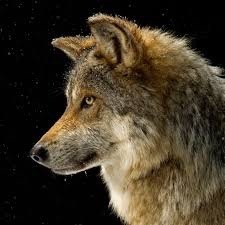
If you see an animal with its eyes set farther back, though—to the side—that animal is prey.

Now look at this dragon.
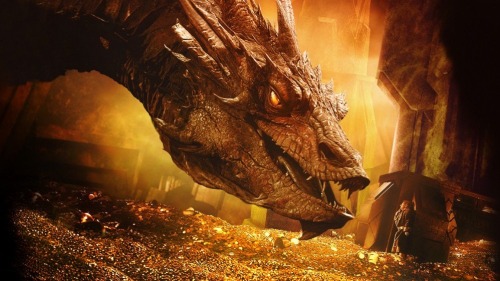
See those eyes?
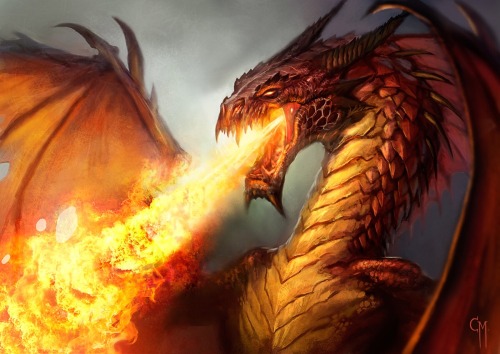
They’re to the SIDE.
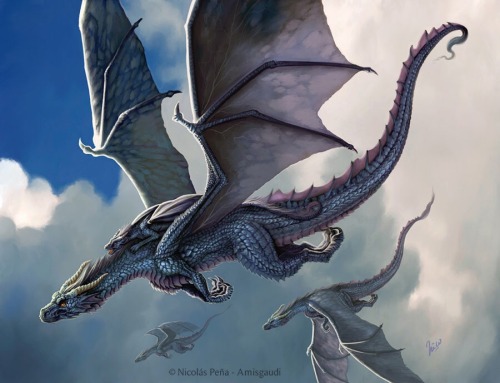
This raises an interesting—and terrifying—question.
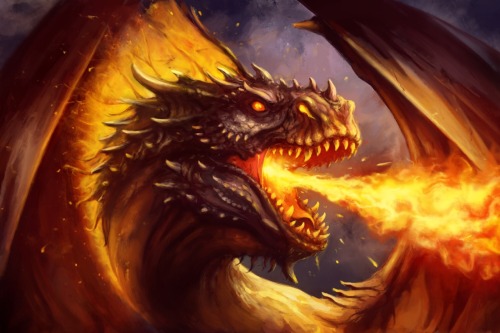
What in the name of Lovecraft led evolution to consider DRAGONS…
As PREY?
Weapons from Celtic Myth
Celtic myth is wack, and the weapons are some of the weirdest stuff out there, so here’s a short list of my faves.
The Gae Bolg- The spear of Cú Chulainn. If you wash it in a stream before use and throw it from the foot, it extends barbs down every blood vessel in the victim’s body. You don’t remove the spear from the corpse so much as clean the corpse off of the spear. Very nasty.
The Spear of Lugh- This thing is so bloodthirsty that if you don’t keep it immersed in a bath of blood while it’s not in use, it’ll burst into flame and consume the blood of everyone nearby. Fortunately, if you don’t have enough blood to fill a bathtub, poppy juice will do.
Claíomh Solais, the Sword of Light- has seven edges. Emits blinding light.
Caladbolg- the sword of Fergus MacRoích. It leaves a rainbow trail when you swing it, and once lopped the tops of three mountains when Fergus missed a strike.
Fragarach, the Answerer- A sword that can cut through anything, inflict wounds that never heal, control the winds, and prevent people from lying when it’s pressed against their throat. That last one may not be a magic power per say.
Excalibur- You think you know it, but those basic boring Athurian Legends you’ve read don’t show off its best powers. In Welsh stories, this thing burns out the eyes of its wielder’s enemies, and cuts through anything that isn’t enchanted like a lightsaber.
If you know any others, feel free to add them!
so I got into grad school today with my shitty 2.8 gpa and the moral of the story is reblog those good luck posts for the love of god
When The End comes for real, it’s just as Crowley supposed, with Heaven and Hell united against humanity. There are a lot of people who don’t believe what’s happening, but about half earth’s inhabitants do. And they show up for the fight.
The army humans have guns, there are doctors wielding baseball bats and taxi drivers with tire irons. Masses of youths are forming up with nothing but broken bottles and spite to defend themselves with.
Lucifer scoffs at them, his beauty already luring some people from their posts.
Not too many of them, though. Aziraphale has to believe that…
There may be millions of angels and demons among the ranks, united for a common goal, but there are billions of humans.
Crowley and Aziraphale are in the thick of it, of course. Of course. Aziraphale has come into the possession of his flaming sword again, through a series of events that Crowley really doesn’t want to think too hard about.
They stare down the Morning Star across the open expanse of the soon to be battlefield, humanity behind them, as much of it sheltered beneath their wings as they can manage.
And then the Heavenly forces begin to sing.
Keep reading
-
 brazillianwizard liked this · 1 week ago
brazillianwizard liked this · 1 week ago -
 capriquill liked this · 4 months ago
capriquill liked this · 4 months ago -
 kosmosblue1015 liked this · 4 months ago
kosmosblue1015 liked this · 4 months ago -
 mediancati liked this · 9 months ago
mediancati liked this · 9 months ago -
 treatyofversigh liked this · 9 months ago
treatyofversigh liked this · 9 months ago -
 darthvoxpo reblogged this · 10 months ago
darthvoxpo reblogged this · 10 months ago -
 yalyublyuypeyzazhi liked this · 1 year ago
yalyublyuypeyzazhi liked this · 1 year ago -
 catofoldstones liked this · 1 year ago
catofoldstones liked this · 1 year ago -
 chefumma liked this · 1 year ago
chefumma liked this · 1 year ago -
 elinor-bolton reblogged this · 1 year ago
elinor-bolton reblogged this · 1 year ago -
 chena-h liked this · 1 year ago
chena-h liked this · 1 year ago -
 tehgeev liked this · 1 year ago
tehgeev liked this · 1 year ago -
 captainscifi22 reblogged this · 1 year ago
captainscifi22 reblogged this · 1 year ago -
 snarkissist liked this · 1 year ago
snarkissist liked this · 1 year ago -
 sanktasansa reblogged this · 1 year ago
sanktasansa reblogged this · 1 year ago -
 liapun liked this · 1 year ago
liapun liked this · 1 year ago -
 cosmictangerines liked this · 1 year ago
cosmictangerines liked this · 1 year ago -
 careschasinpavements liked this · 1 year ago
careschasinpavements liked this · 1 year ago -
 aggressively-polite liked this · 1 year ago
aggressively-polite liked this · 1 year ago -
 lovebitesthehand reblogged this · 1 year ago
lovebitesthehand reblogged this · 1 year ago -
 catofoldstones reblogged this · 1 year ago
catofoldstones reblogged this · 1 year ago -
 untitled26749 liked this · 1 year ago
untitled26749 liked this · 1 year ago -
 mademoiselleparapluie liked this · 1 year ago
mademoiselleparapluie liked this · 1 year ago -
 creatureofalatau liked this · 1 year ago
creatureofalatau liked this · 1 year ago -
 run-godspeed reblogged this · 1 year ago
run-godspeed reblogged this · 1 year ago -
 ihatethecoldalot liked this · 1 year ago
ihatethecoldalot liked this · 1 year ago -
 matsuotanuki liked this · 1 year ago
matsuotanuki liked this · 1 year ago -
 los-cafeteros liked this · 1 year ago
los-cafeteros liked this · 1 year ago -
 meninacastle liked this · 1 year ago
meninacastle liked this · 1 year ago -
 kazetoame liked this · 1 year ago
kazetoame liked this · 1 year ago -
 themockingpoint reblogged this · 1 year ago
themockingpoint reblogged this · 1 year ago -
 my-magical-place liked this · 1 year ago
my-magical-place liked this · 1 year ago -
 whiteraven0001 liked this · 1 year ago
whiteraven0001 liked this · 1 year ago -
 ladylucie liked this · 1 year ago
ladylucie liked this · 1 year ago -
 ladyannabolina liked this · 1 year ago
ladyannabolina liked this · 1 year ago -
 kadarakey liked this · 1 year ago
kadarakey liked this · 1 year ago -
 ladyqueenofwinter reblogged this · 1 year ago
ladyqueenofwinter reblogged this · 1 year ago -
 decadelongsummer liked this · 1 year ago
decadelongsummer liked this · 1 year ago -
 eonweheraldodemanwe reblogged this · 1 year ago
eonweheraldodemanwe reblogged this · 1 year ago -
 eonweheraldodemanwe liked this · 1 year ago
eonweheraldodemanwe liked this · 1 year ago -
 themockingpoint liked this · 1 year ago
themockingpoint liked this · 1 year ago -
 vita-min-ze liked this · 1 year ago
vita-min-ze liked this · 1 year ago -
 agentrouka-blog reblogged this · 1 year ago
agentrouka-blog reblogged this · 1 year ago -
 sanktasansa liked this · 1 year ago
sanktasansa liked this · 1 year ago -
 sansaofyork liked this · 1 year ago
sansaofyork liked this · 1 year ago -
 istumpysk reblogged this · 1 year ago
istumpysk reblogged this · 1 year ago -
 istumpysk liked this · 1 year ago
istumpysk liked this · 1 year ago -
 derleser1987 liked this · 1 year ago
derleser1987 liked this · 1 year ago -
 branwendaughterofllyr reblogged this · 1 year ago
branwendaughterofllyr reblogged this · 1 year ago

92 posts